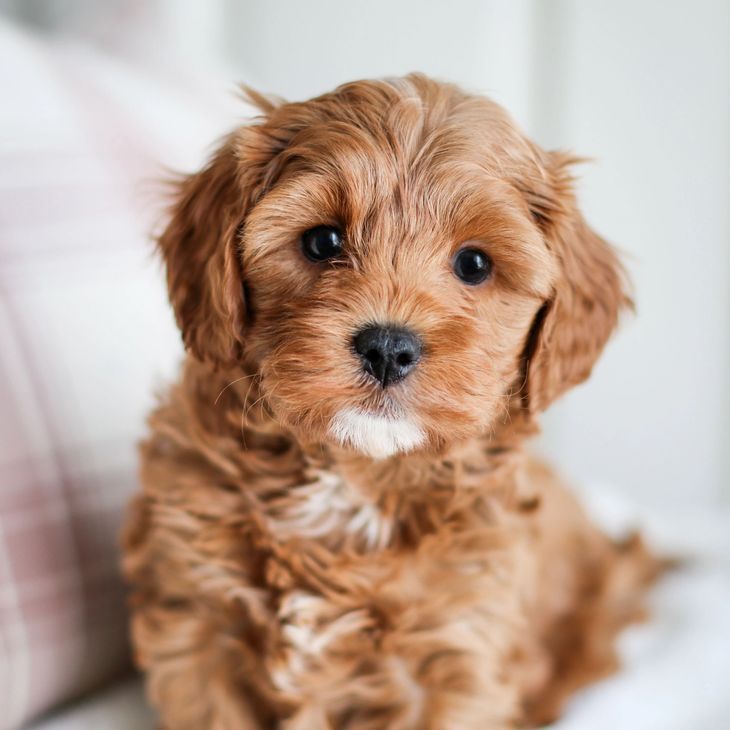How to Handle Puppy Whining the Right Way?
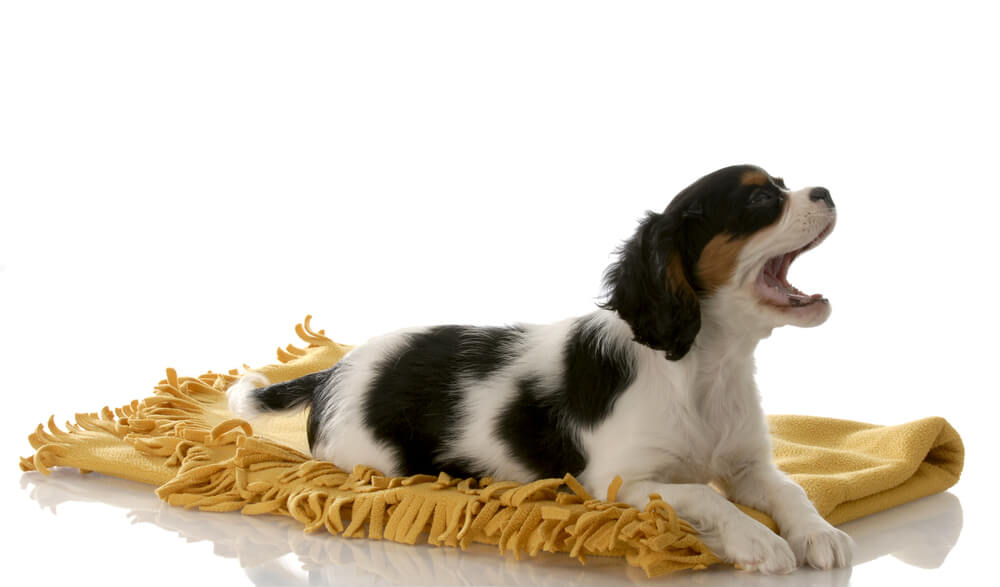
Table of Contents
Listen To The Article
Introduction to How to Handle Puppy Whining the Right Way?
As a puppy owner, there will be times when your little one will whine in protest at something you are doing.
To a certain extent, this is to be expected, as they are still learning how to communicate with you and other family members.
However, if this behavior becomes excessive or distressing, you should try to address it as soon as possible.
The good news is that there are many simple techniques you can employ to prevent puppy whining from becoming a habit.
Puppy whining can be a sign of the dog’s distress or a sign of excitement.
On the online forums for dog owners, it is also the most talked-about topic.
In the long run, it’s better to address this problem now rather than ignoring it and having it get out of control.
Firstly, it’s important to remember that puppies whine for different reasons.
In the first weeks of life, a puppy whines to stimulate its mother to produce milk.
After that, a puppy will often whine when it needs to go to the bathroom, and it will whine when it’s in pain.
However, puppies also whine out of boredom, or simply to get attention.
Whatever the reason, whining is a very common behavior in puppies and is often a difficult one to handle.
If you have a puppy, then you probably know that the pup will whine when he wants something.
The whining can be annoying, especially when it happens in the middle of the night.
But it is a puppy, after all, so don’t be too hard on him.
However, you still need to teach your puppy the proper way to communicate.

Why Is My Puppy Whining?
Is your new puppy whining day and night?
Like raising a new baby, puppies cry and whine to communicate their thoughts and feelings with their new family.
Unfortunately, they don’t speak the same language as their human roommates, so to get their point across, you’ll hear a lot of dogs whimpering, whining, yelping, and even crying.
As much as you love the newest addition to your family, it’s very frustrating to listen to a puppy whining all day, or even worse, throughout the night when you wanted to rest from your busy day.
After days of this behavior, everyone in your house ends up tired and stressed out, and no one wants that.
The first step to correct the dog whimpering is to identify what is making your dog whine.
Once you know what he’s trying to communicate you will be able to help your pup learn to stop.
There are a few reasons why your dog might be whimpering.
- She needs a potty break.
- She wants your attention.
- She feels isolated or fearful.
- She is experiencing discomfort.
You can prevent your pup’s isolation whining by helping her learn to love her crate.
Your puppy needs to feel happy and safe in her crate since it’s going to be her home-in-your-home for quite a while.
Take your time getting your puppy acclimated to it.
Making her initial experiences with the crate positive will help decrease your puppy’s “help, this place is scary” whining.
Give your pup ample opportunity to explore the crate and make sure to have tiring play sessions before you plan to crate her.
Teach her those good things that happen inside, like her meals and treat-stuffed toys, so that she looks forward to crate time.
Many pups whine at night when crated so it’s tempting to put your puppy’s crate at the far end of the house to avoid the ruckus.
Unfortunately, doing so might lead to major potty training problems.
Most young pups can’t hold it for the entire night, and if you’re not able to hear your puppy’s whining when she needs to go out, she’ll be forced to soil inside her crate.
This negates the reason for using a crate since puppies should never relieve themselves in their den.
Keeping your pup’s crate in your bedroom or very close to it will allow you to hear her when she needs a midnight potty break.
Plus, being near you at night can prevent fear and isolation from whining.
Your pup might stop playing with you and whine to signal that she needs to go out for a potty break, but be aware that if she’s resorting to whining, an accident is imminent.
A young, active puppy that’s running around needs to be taken out more frequently, possibly as often as every 30 to 45 minutes.
It’s best to be proactive with your potty trips instead of waiting for a telltale whine.
Crated pups can hold it for slightly longer periods, and you can calculate approximately how often your crated puppy will need to go outside to relieve herself by taking her age in months and converting it to hours.
That means a crated ten-week-old puppy can “hold it” for about two hours max, and slightly longer at night.
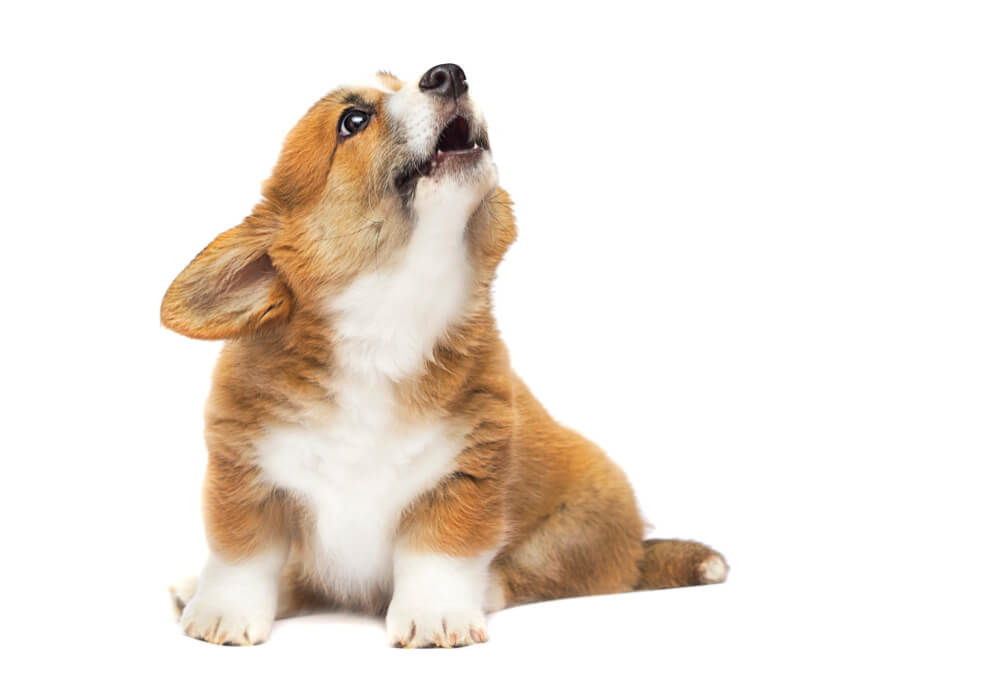
How To Handle Your Puppy’s Whining?
There’s a fine line between being an attentive puppy parent and giving in to your pup’s every whimper.
You need to learn to distinguish between true “something’s not right” cries and typical “I’m not happy” cries.
For example, if your pup whines the second you close the door to the crate and you’re sure she’s “empty,” your best bet is to ignore her initial protest and give her time to settle down.
You can encourage whine-free time by giving your pup something to keep her occupied, whether she’s in her crate and settling down for a nap, or just hanging out near you as you watch TV.
Treat-stuff-able hard rubber toys will encourage her to focus on unpacking the goodies rather than crying for your attention.
Remember, the behavior that is rewarded will be repeated, so if you check in with your puppy every time you hear her whine, she’s likely to continue the “whine for attention” strategy.
A whine might alert you to your puppy’s need for something, but it’s important that you help your puppy understand that quiet works even better to get you to do things for her.
If your puppy whines at you because it’s dinner time, wait for a moment of silence before you put the bowl down for her.
If she screams with excitement because you just got home and you’re about to let her out of the crate, wait for a moment when she’s quiet before you open the door.
Attention-seeking and demand whining are pushy behaviors, so always think about what you might be accidentally encouraging before you give in to them.
Whines and whimpers are a normal part of puppyhood, but it’s up to you to determine just how long they stay in your puppy’s communication repertoire.

When Puppies Whine At Night
Nine times out of 10, puppy whining is based on anxiety.
She’s unhappy at being confined. She’s missing her littermates.
It’s dark and she’s “alone” for the first time in her life.
Puppies are less likely to whine, bark, or cry in distress if they sense your presence.
We know dogs are very social, and being isolated in another room is very upsetting to a new puppy.
She’ll be much happier, and quieter, knowing you’re close.
Puppies are less likely to whine, bark, or cry in distress if they sense your presence nearby.
Keeping your puppy’s crate right next to your bed is helpful for the first few nights when she’ll be extra-worried about this big change in her little life.
This way she can smell you and hear you.
How to soothe a whining puppy at night
When she whines at night, you can hang an arm over the side of the bed to let her sniff and lick your fingers.
If she doesn’t settle down, and you know she doesn’t need to go to the bathroom, a rap on the crate to get her attention with a firm “no!” should do the trick.
The main thing is to reassure her that she’s not alone.
An old trick that still works well is to wrap a ticking alarm clock in a towel for your puppy to sleep with.
The noise is soothing and is said to remind the puppy of another dog’s heartbeat.
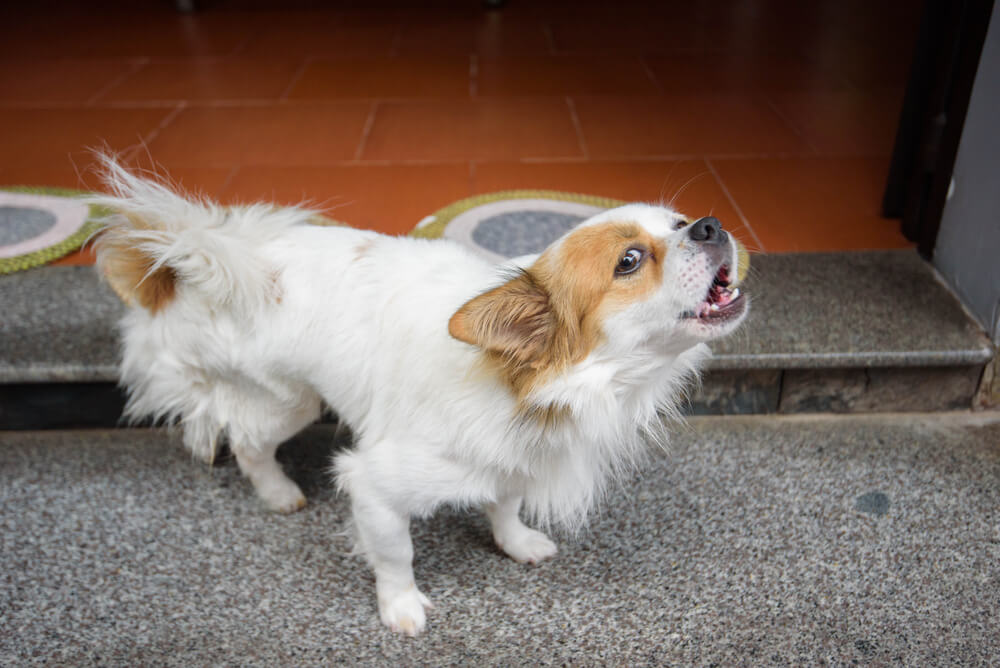
When Puppies Whine During The Day
What if your puppy whines at other times of the day?
First, remember that this is the only way he knows to communicate with you.
Is he trying to get your attention? Is he cold, or hot, or left alone too long?
Is he bored?
Is he full of energy and wanting to play? Does he need to go to the bathroom?
Is he uncomfortable or in some sort of pain?
Determining the cause of your puppy’s whining is important because you want to be sure he’s not in any physical discomfort.
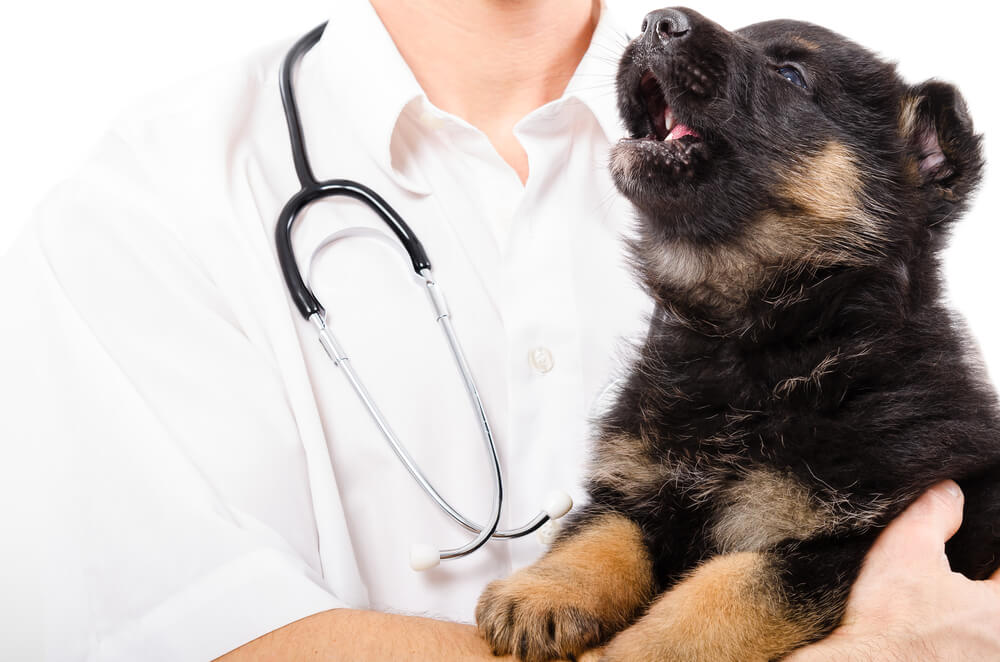
How To Stop Whining?
If your dog is whining excessively, it’s best to try and learn the reason before you try to address the behavior.
Some people don’t mind a little whining now and then, whereas others can barely tolerate it and consider any amount of whining to be excessive and annoying.
The good news is that you can train your dog to whine less or perhaps not to whine at all.
Pay close attention to the sound of your dog’s whining and any other behaviors that accompany it.
Over time, you may notice different pitches and volumes of whines for different reasons.
For example, you may become familiar with the “I want something” and “I’m bored” whines.
Then, when you hear a whine that’s distinctly different, this may help you to determine that the cause is actually stress or pain.
Approach your dog carefully and handle it gently if the whining seems to be due to stress or pain.
If so, the whining can escalate and even develop into aggression.
Look at the situation objectively and go through the potential reasons for the whining before you decide how to proceed.
Never punish or yell at your dog for whining as this may make a fearful or anxious dog become even more so and can lead to aggressive behavior.
If your dog seems fearful, anxious, or otherwise stressed out, try to find the source of the problem.
Many fears and phobias can affect dogs. If you’re able to determine the reason, you may be able to work on training and desensitizing your dog to overcome its fear.
Give your dog what it wants under certain circumstances.
For example, if your dog is whining to go outside for a potty break, it’s better to leash it up or let it out rather than reinforce indoor elimination behaviors.
Avoid unintentionally encouraging your dog to whine.
If you’re quite certain your dog wants something like attention or food, redirect it to another behavior before giving in.
Ideally, get your dog to quietly sit or lie down; then reward it with attention and praise or a treat.
Don’t give in immediately to your dog’s “want” as this actually trains it to whine about everything.
This is the most common cause of problem whining.
Yes, it’s really hard to resist your whining puppy, but if you give in to that cute puppy every time, you could end up with a whiny adult.
Enrich their environment.
Make sure they have plenty of toys and get plenty of exercises.
A dog with pent-up physical or emotional energy is more likely to whine.
Respond selectively to your dog’s whining.
If you’re sure there’s no real need, it’s best to ignore it.
Once you notice a moment of silence, offer praise, a treat, or a similar reward. You can even take this opportunity to work on the “quiet” command.
In most cases, you can manage excessive whining with basic training, mental stimulation, and exercise.
When the behavior is seriously resistant to change, you may need to bring in a trainer or behaviorist for extra help.
Be patient and consistent no matter what, though, and you’re more likely to see your desired results.
You may not be able to completely rid your dog of the habit of whining, but you should at least be able to decrease it to a more tolerable level.
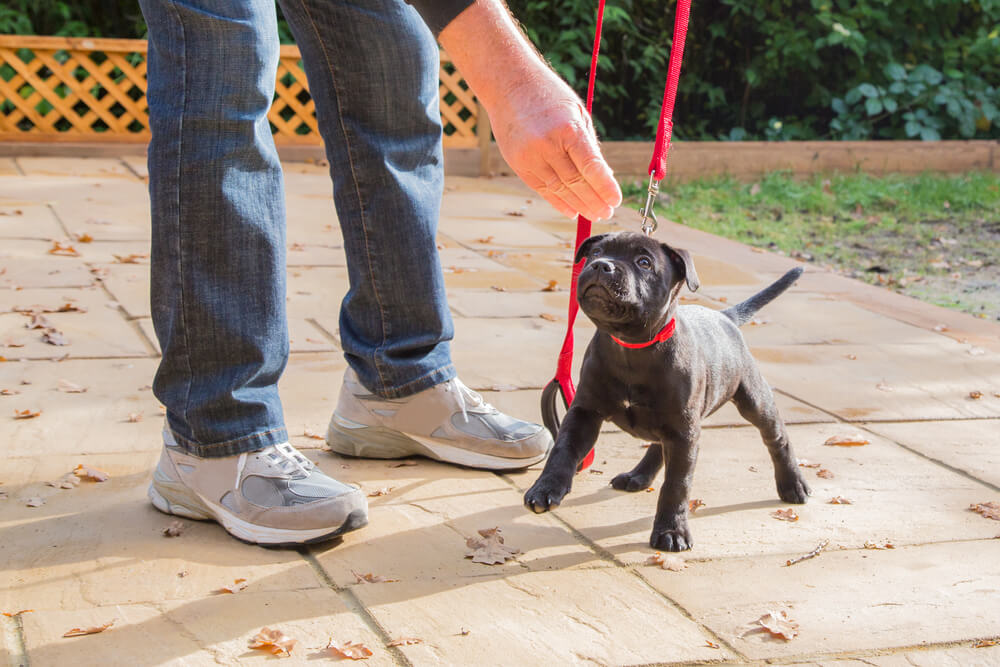
Training A Puppy Not To Whine
If given the chance, your puppy will inadvertently “train you” if you reward him with attention every time he whines.
There may come a time where you just have to tough it out.
You want to avoid creating a whining dog that has you at his beck and call or, whine every time he cries.
It can be a fine line, of course, and it’s important to address his social, emotional, and physical needs first.
If the whining is from boredom or loneliness, make sure you’re providing plenty of stimulation and playtime.
Enlist a trusted pet sitter or dog walker to help and seek out opportunities like puppy playdates.
If you’re confident that your puppy’s needs are met, then gradually increase the time between your puppy whining and your response.
Also, give your puppy what she wants when she’s not whining, so she doesn’t associate whining with rewards.
If you give puppy attention every time she whines, it will almost certainly increase her whining in the future.
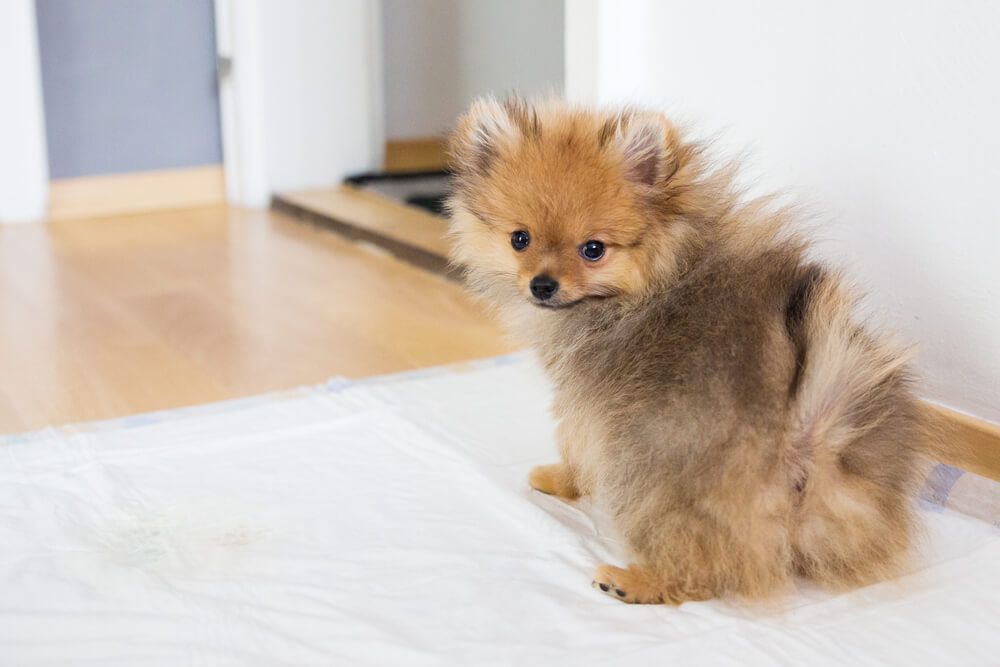
Prevent Whining With Plenty Of Activity
Another trick to reducing puppy whining is to keep them occupied.
Get in the habit of giving him a safe chew toy at bedtime, like a Nylabone for puppies or a KONG toy stuffed with puppy-friendly goodies for him to work on until he forgets his troubles.
During the day, try fetch and chase games to wear him out.
Giving your new puppy plenty of attention, exercise, and toys to play with is part of the fun of raising your new best friend.
As he learns the routine and understands he isn’t being abandoned, the whining will decrease and stop.
A puppy obedience class as soon as he is old enough (after vaccine boosters) will help him to learn manners and gain confidence as he learns what is expected of him, and will deepen your bond.
And somewhere along the way, you’ll notice that he doesn’t whine anymore.


